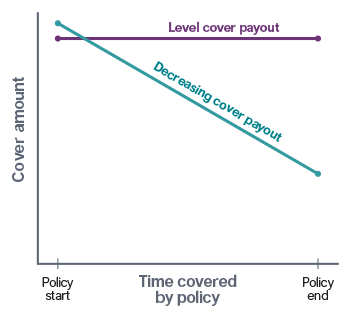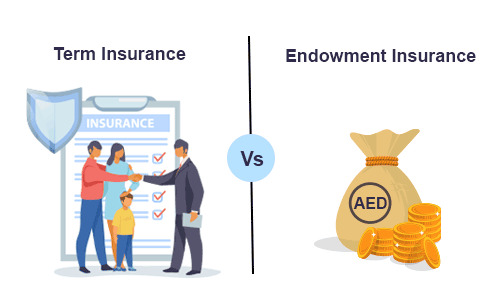Term Insurance Medical Test
When you apply for a term plan, the insurer needs to know how healthy you are before offering you coverage. That’s where companies ask for medical tests in term insurance. By checking your health, insurers offer you fair premiums and higher coverage. It can also help you avoid problems during ...read more
Why is a medical test so pivotal in the process of obtaining term insurance? If you're considering the path of ensuring the financial security of your loved ones, term insurance is undoubtedly one of the smartest decisions you can make.
However, there's a vital step involved before you can purchase this safeguard: a series of medical tests. These tests, far from being a mere formality, play a quintessential role in determining your health status.
This can immediately lead to a few related questions — What happens if you fail the term insurance medical test? How does it influence the policy's premiums and terms?
Best Term Insurance Plans in UAE
Some of the best Term Insurance quotes in UAE & Dubai are:





Table of Content
Why are Medical Tests Important in Term Insurance?
Medical tests play a key role in how term insurance in UAE works. It directly affects your premium, coverage, and even your family’s financial future.
- Fair Premiums for You: Insurers decide your premium based on your health. If you’re fit and have no major risks, your premium is usually lower. Without a medical test, insurers assume a higher risk and may charge you more.
- Higher Coverage Approval: With a clear medical report, insurers are more confident in offering you higher sums assured. That means your family gets better financial protection.
- Fewer Claim Disputes: Many claims get delayed or rejected because health conditions were not disclosed. A medical test puts everything on record from the start, making the claim process smoother later.
- Transparency and Trust: Medical reports build trust between you and the insurer. You know exactly what’s covered. The insurer, meanwhile, also knows your real health condition.
- Personal Health Awareness: Sometimes, tests reveal health conditions you didn’t even know about. Early detection can help you take timely medical steps for your well-being.
So, the answer to ‘is medical test required for term insurance?’ is usually yes, especially if you are older (above 45 years), want high coverage, or have a medical history.
Things to Remember Before Tests
- Always be truthful about your health
- Don’t hide habits like smoking or drinking
- Follow instructions (like fasting before a blood test)
- Keep old medical reports ready if required
Which Medical Tests are Required for Term Insurance?
Here is the list of some medical test required for term insurance —
| Medical Test | What It Checks | Why It Matters |
|---|---|---|
| Height & Weight (BMI Test) | If your weight is right for your height | Helps insurers know if you are underweight, healthy, or overweight |
| Blood Test | Sugar, cholesterol, liver, and kidney function | Detects infections or hidden health issues |
| Urine Test | Diabetes, kidney problems, and other health risks | Quick check for internal health |
| Complete Blood Count (CBC) | Red and white blood cells | Finds anaemia or infections |
| Blood Sugar Test | Glucose levels | Shows if you have or may develop diabetes |
| Kidney Function Test | How well kidneys clean your blood | Ensures kidney health |
| Liver Function Test | Liver enzymes and health | Detects liver damage or disease |
| Lipid Profile | Good and bad cholesterol | Helps find heart disease risk |
| HIV Test | HIV infection | Overall health risk check |
| Chest X-Ray | Lungs and heart condition | Detects heart or lung issues |
| Ultrasound | Liver, kidney, and stomach health | Finds organ-related problems |
| Treadmill Test (TMT) | Heart performance under stress | Checks heart strength and blood flow |
So, the medical checkup for term insurance can be simple (just blood and urine tests) or detailed (X-ray, TMT), depending on your age and coverage.
Factors Affected by Term Insurance Medical Tests
Medical tests directly impact multiple aspects of your term insurance policy —
- Sum Assured (Coverage Amount): Strong health reports = higher coverage eligibility. Adverse results = restricted coverage limits.
Example: A healthy applicant may get AED 1M coverage, while someone with high BP might only get AED 700,000. - Claim Approval or Rejection: If medical information is transparent, the chance of claim rejection reduces drastically. If you skip tests or hide conditions, insurers may deny claims later.
- Claim Settlement Efficiency: Having medical records on file speeds up the settlement process for your family. Insurers don’t need to spend months verifying details after the policyholder’s death.
- Policy Personalisation: Results allow insurers to recommend riders like accidental death benefit, waiver of premium, or critical illness. This makes your policy more aligned with your long-term needs.
How Does the Medical Test Process Work?
The process is simple —
- Fill out your application
- The insurer will call you and set a date for tests
- You can visit a clinic or even do the test at home
- Tests may include fasting (like no food for 8–12 hours before a sugar test)
- Reports directly go to the insurance company
- Based on results, your premium and coverage are decided
Wrapping Up
A medical test for term life insurance may sound like a hurdle, but it is actually a safety net. It makes sure your policy is fair, your premium is right, and your family’s future is secure. So, next time you wonder, ‘is medical test required for term insurance?’, remember that it’s not just a formality. Rather, it’s an important step to get the best protection for your loved ones.
FAQs on Medical Tests for Term Insurance
Is a medical test mandatory for term insurance?
Not always. It depends on your age, health condition, sum assured, and the policy type. Many insurers require tests for higher coverage or older applicants.
Is a medical check-up required for term insurance?
Yes, many insurers may use check-ups to assess your health risks. Depending on your age and coverage, tests may include blood/urine tests, ECG, X-rays, or advanced diagnostics.
Do we need to submit medical history or records to the insurance company?
Yes, you must disclose any past illnesses in the proposal form. The insurer may ask for reports, a questionnaire, or fresh medical tests instead of old records.
Who will pay for my medical tests?
The insurance company usually bears the entire cost of medical tests. Once your application is accepted, the insurer arranges and pays for them.
Are there any hidden terms in term insurance I should know about?
No hidden terms apply if you choose a trusted insurer. Just disclose your health details honestly and read exclusions carefully. After all, hiding facts can lead to claim rejection.
What is the importance of medical examination in life insurance?
It gives the insurer a clear picture of your health, helping them set a fair premium and coverage. It also reduces the risk of claim disputes later.
What are the three key factors to consider while buying term insurance?
Keep in mind your health condition (affects premium), affordability of premiums, and the right sum assured (enough to cover your family’s future expenses and liabilities) while buying term life coverage.
Can I buy term insurance without a medical test?
Yes, some insurers offer plans without tests for younger applicants or lower coverage. But such policies may cost more and provide limited benefits compared to medically underwritten plans.
More From Term Insurance
- Recents Articles
- Popular Articles









.jpg)











.jpg)















.png)













